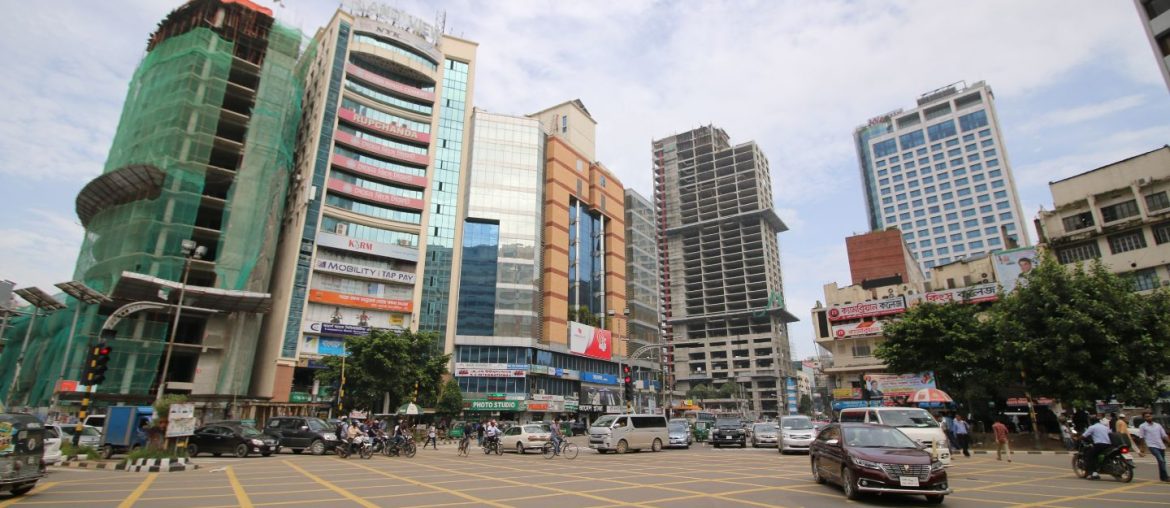The Dhaka North City Corporation (DNCC) is planning to issue the first ever municipal bonds in Bangladesh. They will be issuing Tk1,000 crore bonds so that they can fund the construction of a high rise commercial building in Gulshan. Since this is the first instance of municipal bonds being issued in Bangladesh, many of you may not know what municipal bonds are, and how they can help fuel infrastructure growth and development. This is why we will be exploring the possibilities that come with DNCC’s introduction of the first ever municipal bonds in Bangladesh. But before that, we need to first understand what municipal bonds are, and how they work.

What are Municipal Bonds?
Municipal bonds are debt securities that are issued by municipalities, cities, and states for the financing of infrastructure projects. This includes roads, highways, bridges, buildings, and many other infrastructure projects. It is akin to providing a loan to the local government, where you will get interest in return. The great thing about investing in municipal bonds is that the interest that you get is generally not taxed, making it a great investment for those who pay a high amount of taxes. Municipal bonds are also a lot less risky compared to corporate bonds, but that depends on what type of bond is being issued here. General Obligation bonds (GO) are issued to fund infrastructure projects that will not generate revenues. These include schools, roads, and bridges. On the other hand, revenue bonds are bonds for projects that will provide revenue, such as commercial buildings.
Investing in Municipal Bonds
Now that we’ve covered what municipal bonds are, let’s look at the benefits and risks associated with investing in Municipal bonds. One of the best aspects of investing in municipal bonds is that they are less likely to fail when compared to corporate bonds. And although they offer lower interest rates, there are no taxes on the interest gained from them. There is however an interest rate risk, as a rise in interest rates will result in a lower yield from your investment. It also decreases its value in the bond market. There are also different ways to invest in municipal bonds. One is investing in new projects. This is where you buy the bonds when they’re initially floated in the market. After that, you can sell it to the secondary market, from where others can buy the bond before it matures. You can also invest in mutual funds that invest in multiple bonds.

DNCC City Bond
Infrastructure projects can be very expensive, especially in large cities. And requesting funds from the government can be a tedious process. The Dhaka North City Corporation (DNCC) was facing this exact problem when they were planning to construct the Gulshan Super Market 2 building. It is a huge project which required a lot of funding. The DNCC then decided to issue municipal bonds for the construction of this project. It is commonly used to raise capital for large scale infrastructure projects all around the world, even in neighboring countries such as Pakistan and India. Bonds worth Tk1,000 crore will be issued for the construction of the high rise commercial building, with both institutional and individual investors being eligible to buy these bonds. The issuance of such bonds will allow the DNCC to construct such buildings, from which they can obtain much-needed revenue. This in turn will help fund other infrastructure projects.
The Future of Municipal Bonds in Bangladesh
According to Atiqur Rahman, the mayor of DNCC, this first issuance of municipal bonds will be a trial to see the feasibility of municipal bonds in Bangladesh. By raising money from the bond market, the DNCC aims to achieve self-sufficiency, without relying solely on funds from the government. If this goes well, they will issue municipal bonds for further revenue earning projects in the future. With the extra income from these projects, the DNCC can get funding for infrastructure projects in its 18 wards across Dhaka North. Experts in the capital market also believe that investors in Bangladesh are really excited about the prospects of municipal bonds, which means that other city corporations and municipalities can take on such bonds in the future to finance projects.
With the Dhaka North City Corporation (DNCC) planning to issue the first ever municipal bonds in Bangladesh, there opens a new world of possibilities: for governmental bodies to raise funds for future projects, and for investors to invest in the bond market. Only time will tell how effective the municipal bonds will be for financing ambitious projects of the DNCC.




